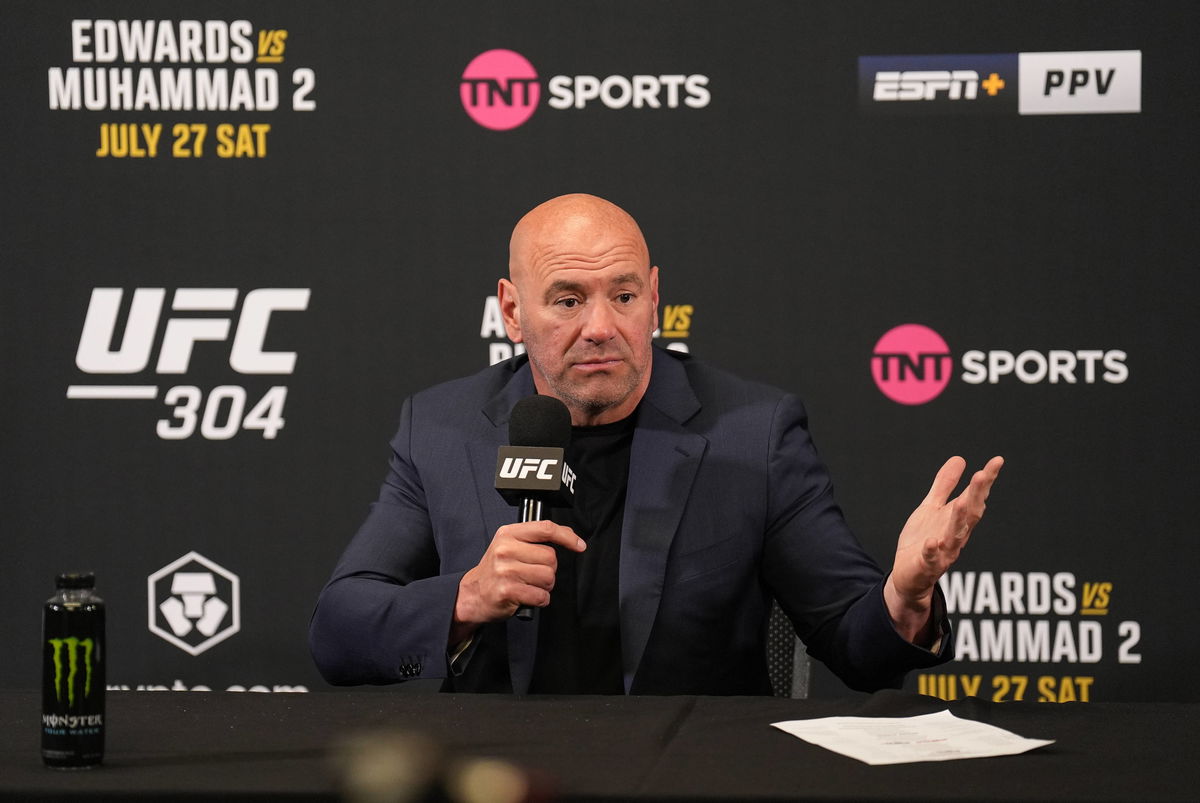
Imago
UFC CEO DANA WHITE with post event media during the UFC 304 event at Co-op Etihad Campus, SportCity, Manchester, England on the 27 July 2024. Copyright: xAndyxRowlandx PMI-6350-0002

Imago
UFC CEO DANA WHITE with post event media during the UFC 304 event at Co-op Etihad Campus, SportCity, Manchester, England on the 27 July 2024. Copyright: xAndyxRowlandx PMI-6350-0002
In the chaotic, fast-moving world of combat sports, very few athletes stand the test of time. Even fewer do so across multiple decades, adapting through eras, opponents, and varying fighting styles. Andrei Arlovski—once the youngest rising star in the UFC heavyweight division—is now regarded as one of the most enduring veterans in the MMA world. Over the years, he became a fixture in the UFC’s fabric: a symbol of both old-school grit and quiet resilience. So when rumors began swirling in 2024 about his UFC status, fans were left wondering—was the end near, or was The Pit Bull simply preparing for one more round? Alas, he was let go by Dana White after 17 years of being with the promotion.
Watch What’s Trending Now!
However, do not feel bad for the veteran MMA fighter. He has found a place in a new promotion—Conor McGregor led BKFC. Andrei Arlovski doesn’t mince words—or feelings. During his candid conversation with Ariel Helwani, the former UFC heavyweight champion casually revealed a career-defining moment: “The UFC asked me to leave,” he said with a short laugh, when asked about why he was joining the BKFC. “That’s why I am fighting for the BKFC,” the Belarusian legend added.
ADVERTISEMENT
A year ago, during another interview on the MMA Hour, Arlovski had unpacked the dynamics of his departure from Dana White’s promotion. “They asked me, do I want? And I said no. The UFC proposed to do something, but I didn’t want it. My chapter in the UFC is closed, but definitely not on my MMA career.” At 46, he is now scheduled to make his debut at BKFC76 on June 21, against Josh Copeland at Dickies Arena in Fort Worth, Texas.
View this post on Instagram
ADVERTISEMENT
Arlovski’s resume reads like a tour through MMA history. He first began his career at Dana White’s promotion at UFC 28 on November 17, 2000, with a bout against Aaron Brink. More than seven years later, and after a UFC heavyweight title win, he left the promotion in March 2008. However, that wasn’t the end as he returned six years later at UFC 174 in June 2014, for a heavyweight bout against Brendan Schaub, a fight which he won despite being a heavy underdog. His final Octagon appearance—a split-decision loss to Martin Buday—came at UFC 303 on June 29, 2024. That is a total of 17 years with the promotion.
Through the years, he faced top contenders—Alistair Overeem, Stipe Miocic, Tim Sylvia, Tom Aspinall, Francis Ngannou—and amassed a record-setting 42 UFC appearances, the most by any heavyweight. That is not all. To this day, he holds the record for most wins in UFC heavyweight history at 23. Regardless, now it’s onto a new avenue for the MMA legend.
ADVERTISEMENT
This isn’t a farewell—it’s a reinvention. Arlovski’s decision to leave the UFC wasn’t the end; it was a turning point. From octagon icon to gloves-off gladiator, The Pitbull is proving that age isn’t an expiration date—it’s a milestone on the road to the next fight.
ADVERTISEMENT
Jake Paul continues to highlight issues with Dana White’s UFC
It’s not the first time Dana White has dispatched a talented fighter. He’s been doing it for years now—sometimes with a cold contract cut, sometimes with silence. But in Jake Paul, White may have encountered a new kind of opponent: one who fights not for a belt, but for a cause.
Jake Paul, once dismissed as an internet sideshow, has rapidly rebranded into one of the most polarizing voices in combat sports. And behind the flashy knockouts lies a consistent thread of criticism, targeted squarely at how the UFC, under Dana White, treats its fighters. On The Iced Coffee Hour podcast a few days ago, Paul didn’t hold back. “I started being around boxers and MMA fighters and all this stuff and would always hear how underpaid they were,” he said. But it was hearing firsthand stories—particularly from Amanda Serrano, who Paul said was earning only “$4,000 a fight”—that changed his curiosity into outrage.
ADVERTISEMENT
That outrage became purpose. “I basically accidentally became a spokesperson for like women’s fighters and for MMA fighters,” Paul told the hosts. His criticism zeroed in on numbers. “The UFC only pays its fighters like 10% of its income,” he claimed, contrasting it with the 50% share athletes receive in the NBA or NFL. Even if analysts suggest the UFC’s number is closer to 16–20%, the disparity remains glaring. “Why not increase it to $50,000? You’re gonna make the sport better… it’s just going to be better for the whole ecosystem,” Paul argued.
But it wasn’t just about figures—it was about power. “It’s just capitalism at the end of the day… he can pay them whatever he wants, essentially, or they won’t fight,” Paul said, referring to White’s role. He called the UFC a “monopoly of sorts,” pointing to how limited options and restrictive contracts leave fighters with little bargaining power. That viewpoint now echoes far beyond YouTube clips. Demetrious Johnson, one of the greatest MMA fighters of all time, also voiced similar frustrations, noting that WWE performers often earn more than UFC champions—and that even after a legacy-making career, he missed out on the mega-paydays fighters like McGregor enjoyed.
ADVERTISEMENT
And the system is finally being forced to reckon with those complaints. After years of mounting pressure, the UFC is now facing a $260 million class-action settlement, following allegations that it suppressed fighter wages and unfairly monopolized the market.
ADVERTISEMENT
ADVERTISEMENT
ADVERTISEMENT